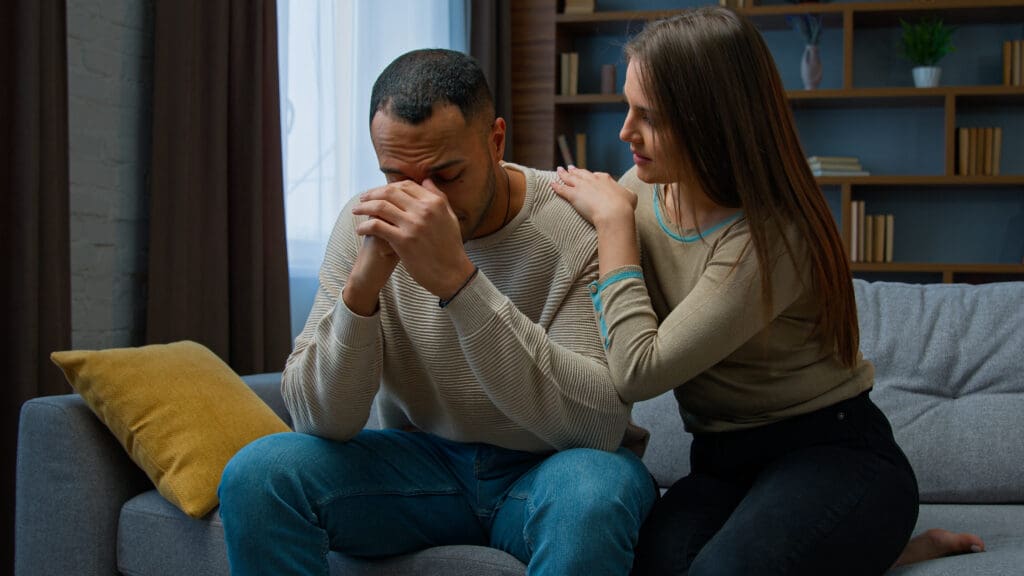Opioid addiction is a crisis that affects families and communities everywhere. From prescription painkillers to heroin and fentanyl, opioids have created one of the most devastating addiction epidemics in modern history. But opioid addiction is more than a physical struggle. It attacks the mind and soul, leaving many people feeling powerless and ashamed.
At Good Landing Recovery, we know that opioid addiction is not the end of your story. Through faith, professional support, and daily choices rooted in truth, healing is possible. Whether you are personally struggling or watching someone you love battle opioid addiction, understanding the nature of this addiction is the first step toward freedom.

What Is Opioid Addiction? Understanding the Problem
Opioid addiction occurs when a person becomes physically and emotionally dependent on opioids. This can start with prescription drugs like oxycodone or hydrocodone, or with illegal substances like heroin or fentanyl. What often begins as a response to physical pain can quickly develop into a powerful cycle of addiction.
Opioids work by altering the way the brain perceives pain and pleasure. Over time, the brain adjusts to these chemicals and requires higher doses to achieve the same effect. Eventually, the body and brain crave opioids simply to feel normal. This creates a deep dependency that is hard to break.
However, opioid addiction is not just physical. Many people use opioids to numb emotional pain, suppress trauma, or escape difficult realities. What feels like relief is actually a trap that leads to isolation, shame, and spiritual emptiness.
At its core, opioid addiction is a spiritual battle as much as a physical one. Addiction pulls people away from their God-given purpose. It distorts their sense of worth and identity. What begins as a solution to pain becomes a form of bondage.
But there is hope. Understanding opioid addiction is not about assigning blame. It is about recognizing the depth of the struggle so that healing can begin.
Why Opioid Addiction Is So Hard to Break
The grip of opioid addiction is strong because it affects every part of a person’s life. Physical withdrawal symptoms make stopping feel impossible. Without opioids, many people experience nausea, body aches, intense cravings, and emotional distress. Fear of this withdrawal pain keeps many trapped.
Beyond the physical struggle, opioid addiction affects the mind. Addiction convinces people that they cannot function without the drug. It rewires the brain to prioritize opioids over everything else. This mental dependency often leads to isolation, as shame grows and trust in loved ones fades.
Opioid addiction also impacts the soul. It creates a sense of hopelessness and spiritual numbness. Many people feel abandoned by God or believe they are too far gone to be redeemed.
This combination of physical, mental, and spiritual struggles is what makes opioid addiction such a difficult cycle to break. But no addiction is stronger than God’s power to redeem.
The Role of Faith and Professional Help in Overcoming Opioid Addiction
Breaking free from opioid addiction requires a whole-person approach. This means addressing the physical, mental, and spiritual aspects of recovery.
Professional help plays a key role. Medical supervision is often necessary to safely manage withdrawal symptoms. Therapy and counseling help address underlying trauma and emotional wounds. These are not signs of weakness. They are tools of wisdom that support healing.
But recovery cannot rely on professional care alone. Spiritual healing is just as essential. Faith in Christ provides the strength and hope needed to persevere through difficult days. Prayer, Scripture, and worship offer peace that goes beyond what the world can give. Christian community provides accountability and encouragement for the journey.
At Good Landing Recovery, we believe that real healing happens when professional care meets the power of faith. Through biblical truth and compassionate support, recovery becomes not just a possibility, but a reality.

What Families Need to Know About Supporting a Loved One With Opioid Addiction
Watching someone you love struggle with opioid addiction can be heartbreaking. You may feel powerless, frustrated, or overwhelmed. But your presence matters more than you know.
Supporting a loved one through addiction requires patience, wisdom, and boundaries. It is important to remember that you cannot fix their addiction. Only God can heal the broken places in their heart. Your role is to walk alongside them without carrying the burden for them.
Here are a few ways families can offer meaningful support:
- Pray consistently, trusting God to work in your loved one’s life even when you cannot see progress.
- Encourage them to seek professional help and faith-based support without forcing them.
- Set healthy boundaries to protect your own emotional and spiritual health.
- Celebrate small victories and remind them that change is possible through Christ.
- Remember that your loved one’s recovery is not your responsibility, but your encouragement can help light the way.
You do not have to walk this path alone. Seek support for yourself through church, counseling, or trusted friends who understand what you are facing.
From Addiction to Freedom: Why Your Story Isn't Over
Opioid addiction tells people their story is finished. It whispers that freedom is impossible and that healing will never come. But those are lies.
Your story is not over. Healing is possible. Recovery is possible. And hope is still alive.
At Good Landing Recovery, we believe that no addiction is beyond God’s power to heal. Every life has value, and every person trapped in opioid addiction has a future worth fighting for. Whether you are seeking help for yourself or for someone you love, remember this truth: Christ redeems what addiction tries to destroy.
Choose faith. Choose community. Choose the path toward freedom. Because no matter how long you have struggled, today can be the day that healing begins.

